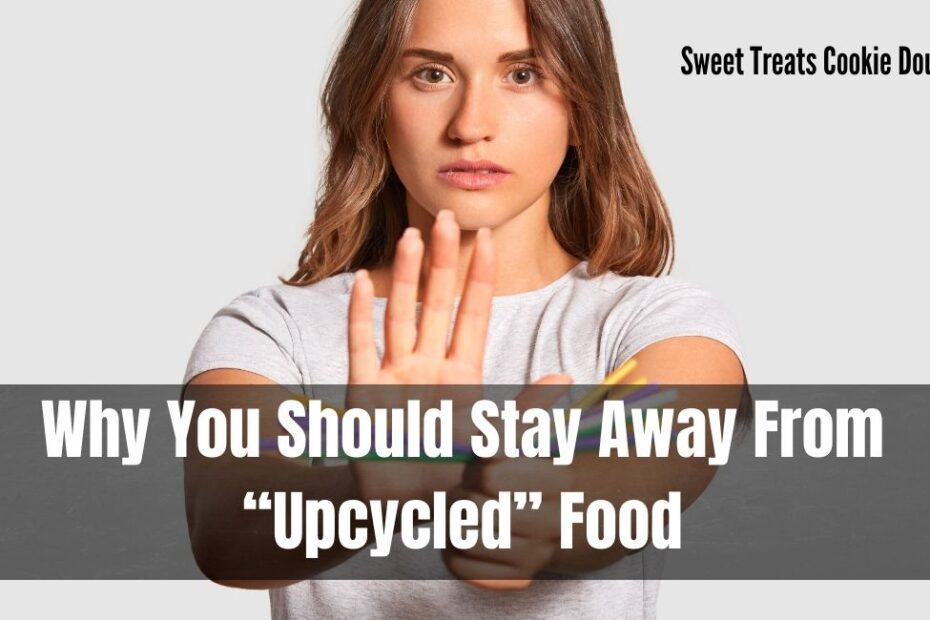This article explains why customers should avoid upcycled foods since they are neither nutritious nor safe, and are eventually used to conceal a more sinister aim for the world’s food supply.
In this time of increasing worldwide shortages and supply chain instability, the notion of “upcycled food” is gaining traction.
It appears that upcycling is particularly popular among Generation Z and Millennials, who spend a significant amount of time on social media, where they are bombarded with incessant messages from brainwashing bots and astroturfed advertisements.
What exactly is upcycling?
Upcycling, which has been identified as a big trend by Amazon-owned Whole Foods, seeks to solve the issue of waste by repurposing trash that would otherwise wind up in the landfill to produce new items.
Advocates highlight the benefits as being extremely scalable and economically sustainable in nature.
Compost
Examples include companies who collect food waste and compost it into potting soil, which is then sold to nurseries and garden supply shops as potting soil.
When it comes to this application, using food waste for this purpose is generally acceptable, so long as the raw ingredients are derived from safe and ethical sources.
More on this in the section below.
Foods that have been processed
What do you think about upcycling into actual food that will be sold in supermarkets?
Convenience is one of the reasons why consumers prefer recycled meals. As an added bonus, it has a “feel good” component. You’re doing your part to help the environment, right?
For example, the marketing of recycled frozen smoothie shots by the start-up reBlend focuses on the convenience of eliminating the hassle of preparing and cleaning up after freshly produced smoothies made with entire fruits and vegetables is eliminated.
Instead, why not just grab a frozen smoothie shot created from plant leftovers that would otherwise end up in the garbage?
Foods that have been repurposed are not healthy.
The most serious problem with upcycled foods is that they are completely devoid of nutritional value.
When a consumer chooses to replace a processed food for a freshly prepared item, they are ALWAYS making a significant nutritional sacrifice.
What, for example, are you really giving up if you are a Millennial who makes smoothies every morning before going to work instead of using a repurposed version?
Processing robs the body of its nutritional value.
Make your smoothie from scratch with fresh fruits and vegetables to guarantee that all of the enzymes and probiotics are preserved.
The food is fresh, and as a result, it is ALIVE.
Upcycled smoothies, on the other hand, are subjected to processing. This means that the plant food juices are pasteurized, either by heat or pressure, before they are packaged for consumption.
For the most part, the manufacturing process itself eliminates the nutritional value of the product. This contains at least half of the Vitamin C as well as all of the enzymes and probiotics, as well as other nutrients that are sensitive to heat and pressure.
An upcycled smoothie, while convenient, is in no way comparable to a freshly produced smoothie in terms of taste and texture. This isn’t even close!
Toxic Substances and Chemical Residue
Another issue with upcycled meals is the use of additives, which are almost always present.
Citric acid is featured on the nutrition label of the reBlend smoothies since they contain it. Due to the fact that the product is not organic or nonGMO certified, it is very probably derived from GMO corn as well.
Citric acid derived from genetically modified corn is likely to include MSG residues, which might cause an allergic reaction, headaches, and stomach difficulties.
Roundup residue is also a possibility because genetically modified crops are heavily sprayed with this herbicide.
Do you know if your homemade smoothie contains any of these unpleasant ingredients? No way in hell!
The truth is that, even in a pinch, upcycled smoothies fall short of the quality of homemade smoothies.
If you want something quick and easy, pick up a freshly made smoothie on your way to work from your local health food store or smoothie bar.
An Important First Step Towards a Synthetic Food Supply
‘Upcycling’ has the greatest potential for harm since it is an environmentally favorable term that may be used to manipulate the public into accepting a totally synthetic food system in the future, which is the ultimate goal of the global elite’s ultimate purpose.
The “end of meat” scenario, which encompasses the abolition of farms and the replacement of traditional animal husbandry with lab-grown meat and genetically modified organisms (GMOs), is the defining characteristic of this sort of food system.
It also includes the horrors of consuming food that contains bioengineered proteins derived from plastic, as well as food that is derived from human waste.
You might be surprised to learn that composting human remains for crop fertilization is already permitted by state law in Washington State, if you believe that this will never happen to you.
It is therefore crucial to understand that, while some valid and ethical uses for upcycled items exist, such as agricultural compost generated solely from food scraps, it is important to understand that upcycled foods have almost no place in the human diet when it comes to health and nutrition.
Powerful billionaires and multinational corporations are behind this proposal, which they hope will allow them to control the world’s food supply in order to satisfy their insatiable desires for power, money, and control.
It is not a trend that is in the best interests of the environment or the health of consumers.
